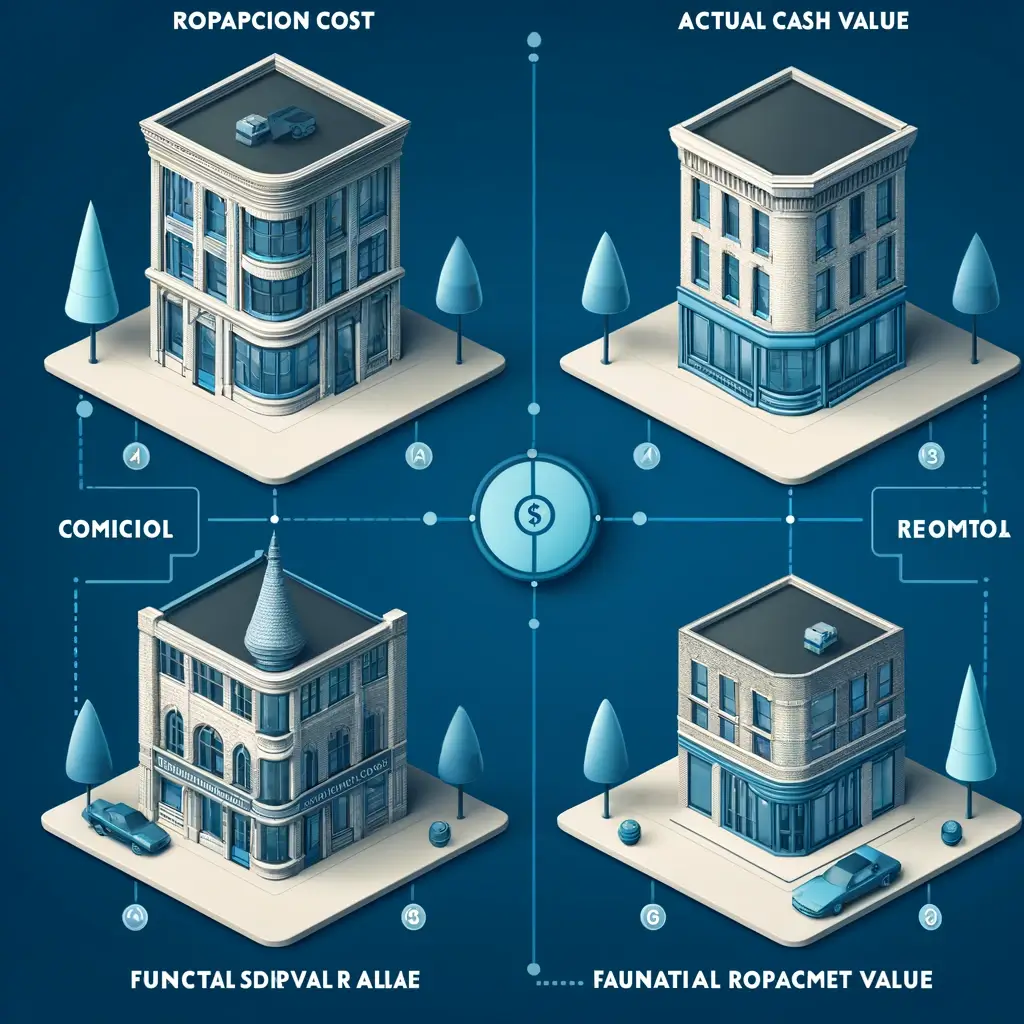When it comes to commercial property insurance, understanding how your property is valued by insurers is crucial. The valuation method used can significantly affect your coverage and the premiums you pay. Carvo Insurance Group utilizes advanced tools like instant online quotes, instant online binding, and detailed insurance proposals to make obtaining and understanding your commercial property insurance straightforward. Here, we answer key questions about the various valuation methods used in commercial property insurance.
What are the common valuation methods used in commercial property insurance?
Replacement Cost (RC): This method values property based on the cost to replace it with new property of similar kind and quality without deducting for depreciation. Replacement cost is ideal for ensuring that your property can be fully rebuilt or repaired to its previous condition after a loss.
Actual Cash Value (ACV): ACV is the cost to replace the property with new property of similar kind and quality, less depreciation. Depreciation is a reduction in value due to wear and tear or age. This method is often less expensive than RC coverage but provides less protection since it considers the depreciated value of the items.
Agreed Value: Under this method, the insurer and the policyholder agree on the value of the property at the time the policy is purchased. This agreed amount will be the payout in the event of a total loss, regardless of the actual cash value or replacement cost at the time of the claim.
Functional Replacement Cost: This is a variation of replacement cost that covers the cost to replace damaged property with less expensive and more modern construction or materials that are functionally equivalent to the damaged property. This method can be beneficial for older buildings where traditional replacement methods are not cost-effective or desired.
How do I choose the right valuation method for my property?
Choosing the right valuation method depends on several factors, including the age and condition of your property, the property’s use, and your financial capability to absorb potential losses. Here are a few guidelines:
- New or Newly Renovated Properties: Replacement cost coverage is typically recommended to fully protect your investment.
- Older Properties: Consider actual cash value or functional replacement cost if newer materials or less expensive alternatives can be used in repairs.
- Special-Purpose Properties: Agreed value can be beneficial if your property has unique features that do not have a clear market value.
How can I get an instant online quote that considers my preferred valuation method?
Carvo Insurance Group offers an easy-to-use Instant Online Quote tool that allows you to select your preferred valuation method and instantly see how it impacts your coverage options and premiums. Simply:
- Visit our commercial property insurance page.
- Input your property details and select your desired valuation method.
- Receive your personalized insurance quote instantly.
What are the benefits of instant online binding and proposals?
Instant Online Binding allows you to immediately secure your chosen insurance coverage, ensuring there are no gaps in protection. Meanwhile, our Instant Online Insurance Proposal provides a detailed breakdown of your policy, including coverage limits, premiums, and the specifics of your chosen valuation method, allowing for:
- Transparency: Full disclosure of all terms before you commit to a policy.
- Flexibility: Easy adjustments to your policy as your business needs or property conditions change.
Conclusion
Understanding different valuation methods and choosing the right one for your commercial property can significantly affect how well your assets are protected. Carvo Insurance Group is here to help you navigate these decisions with cutting-edge online tools and expert advice.
For a Commercial Property Insurance Quote, click here.


